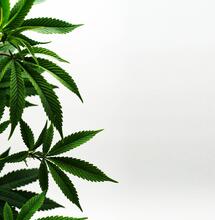Is legal cannabis the answer to the opioid crisis?

A study conducted by the University of California, Davis, have found a reduction in opioid-related deaths in the USA between 2014-2018 in areas with easy access to legal cannabis dispensaries. These deaths are linked mainly to synthetic opioids such as Fentanyl and prescription painkillers like oxycodone and morphine.
This information could be very influential as state governments push for further cannabis legalisation as a policy option to attempt to control the opioid epidemic that is rife in the USA. The idea being that cannabis could perhaps act as a much less harmful substitute to opioids to produce the same euphoric feelings and relieve symptoms of chronic pain conditions and stress.
Opioids prescription is commonly for chronic pain conditions, but their use does stretch beyond this. Opioids can also treat people who have undiagnosed mental illness, addictions, and those facing the threat of violence or abuse, helping them cope with and numb the psychological trauma.
Many synthetic opioids hold no licence to be prescribed in the UK and parts of Europe due to their addictive qualities. However, the USA's situation is very different, where prescription and misuse through sale on the Black market is widespread.
The USA has been in the grip of an opioid crisis for the past 20 years. In 2017 alone, 191 million people held an opioid prescription. That's a rate of 58.7 prescriptions per 100 people!
In 2018 46,802 people in the USA died of an opioid-related overdose; that's 128 per day! And two-thirds of those deaths were the result of synthetic opioid use.
The study findings on legal cannabis and opiate mortality reduction are collated from the 812 counties within the 23 US States that had operating legal cannabis dispensaries by the end of 2017. After all other potential influencing factors were considered, researchers found an increase from one to two legal cannabis dispensaries in a county is linked to a 17% drop in all opioid-related deaths, particularly with synthetic opiate painkillers.
A further increase occurred in areas where there was a rise from two to three dispensaries. In this scenario, opioid mortality rates reduced by an additional 8.5%.
It would appear on the surface that more people who are given the opportunity are turning to cannabis to address their mental and physical health problems rather than indulging in very addictive synthetic opioid use.
Some see cannabis as a safer alternative to opioids. Although both are in the class of analgesic (pain-relieving) drugs that bind to receptors in the body, the way that they act on the body is distinctly different.
There are three primary locations in the body where opioid receptors are most dense, the spinal cord, limbic system and brain stem. The brain stem includes the medulla, which is the part of the brain that controls non-voluntary functions such as breathing and heart rate. Tolerance to opioids builds quickly, so larger doses are required to achieve the same results. In the possible event of an overdose, the medulla can become depressed and result in heart or lung failure and death.
In contrast, cannabis receptors in the brain are most densely located in the basal ganglia, the hippocampus and cerebellum. None of which are responsible for involuntary functions such as breathing or heart rate but rather emotion, memory control and motor function. Therefore, if you encounter an "overdose", the symptoms experienced will be headaches, sickness, and paranoia. There has never been a recorded case of death as a result of an overdose of cannabinoids. Ever.
Researchers argue that it is still very early to make assumptions as the evidence is very general and raw. The argument is that cannabis cannot be regarded as a solution to the opioid crisis until more evidence is available. Further studies are needed to collect and collate detailed data on individuals who use prescription opioids and those who acquire and use them illegally. This would produce a clearer picture of how and where cannabis is acting as a substitute for opioids.
Of course, whilst further research and understanding is a great thing, the evidence available to us so far is very positive and promising for the ongoing liberalisation and un-demonising of cannabis.
The idea that the USA is considering cannabis as a strategy to reduce the harm caused by other more addictive and dangerous drugs is a clear indication that there has been a shift in public opinions. It is a big step forward that a substance that has long been considered a "gateway" to harder drugs such as opiates is now being touted as a possible solution for a severe, long-standing public health crisis.




